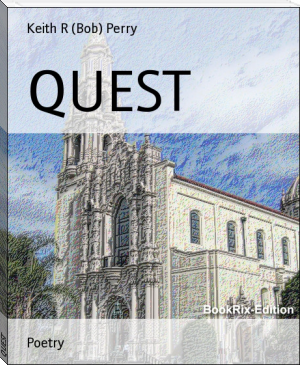The Ship of Fools, Volume 1-2 - Sebastian Brant (thriller books to read TXT) 📗

- Author: Sebastian Brant
- Performer: -
Book online «The Ship of Fools, Volume 1-2 - Sebastian Brant (thriller books to read TXT) 📗». Author Sebastian Brant
All thynge to venge (by wrath) that doth mysfall
For he that part hath lost: by wrath oft lesyth all
And forsoth no meruayle, if suche wyse actours
Hath wrathes madnes, expelled and set asyde
For where that wrath doth rayne with his furours
There can no reason nor wysedome longe abyde
The wyt it wastyth: so is it a lewde gyde
Therfore let mesure, this malyce holde agayne
But pacyence is brydyll his madnes to refrayne
It longeth nat to any man of hye prudence
For to be wrothe, yrous, or gyuys to malancoly
No suche passyon nor inconuenyence
Can fall to man, ay stedfast wyse and holy
But folys ar moste troublyd with this foly
Where as a wyse man for any aduersyte
Lyueth in quyete mynde and tranquylyte
A man well manerd, sad sober and dyscrete
If he be ware, wyse, chrafty and prouydent
Beholdeth all thynge before his syght and fete.
Gydynge hym by mesure a vertue excellent
Where as a fole doth all without aduysement
And in euery thynge shewyth his folysshnes
Wroth at eche worde, as mayster of madnes
Wherfore ye folys se ye no lenger tary
But on the dull Asse hastely assende
That a slowe beest may hasty folys cary
For your mad wrath dowtyth no thynge the ende
Your madnes can nat your blynde mysdede defende
For who that one sleyth, angry and feruent
Ought to be hangyd whan he is pacyent
THE ENUOY OF THE ACTOUR.
Blynde myndyd man whiche wylt all thynge ouercome
Reputynge thy selfe, moste souerayne and royall
If thou be wyse or partener of wysdome
Labour to ouercome thyne owne selfe firste of all
Thy wrath asswage thou in especyall
Let neyther malyce, nor yre with the abyde
Thou art a fole the chefe or lorde to call
Of other: whan thou can nat thy selfe well gyde.
*
Of the mutabylyte of fortune.
[Illustration: That man whiche hopyth hye vp to ascende
On fortunes whele, and come to state royall
If the whele turne, may doute sore to descende
If he be hye the sorer is his fall
So he whiche trustyth nat therto at all
Shall in moste eas and suerty hymselfe gyde
For vnsure fortune can in no place abyde]
We dayly proue by example and euydence
That many be made folys mad and ignorant
By the brode worlde, puttynge trust and confydence
In fortunes whele vnsure and inconstant
Some assay the whele thynkynge it pleasant
But whyle they to clym vp haue pleasour and desyre
Theyr fete them faylyth so fall they in the myre
Promote a yeman, make hym a gentyl man
And make a Baylyf of a Butchers son
Make of a Squyer knyght, yet wyll they if they can
Coueyt in theyr myndes hyer promosyon
And many in the worlde haue this condicion
In hope of honour by treason to conspyre
But ofte they slyde, and so fall in the myre
Suche lokys so hye that they forget theyr fete
On fortunes whele whiche turneth as a ball
They seke degrees for theyr small myght vnmete
Theyr folysshe hertis and blynde se nat theyr fall
Some folys purpose to haue a rowme Royall
Or clym by fortunes whele to an empyre
The whele than turneth lyuynge them in the myre
O blynde man say what is thyne intent
To worldly honoures so greatly to entende
Or here to make the hye ryche and excellent
Syns that so shortly thy lyfe must haue an ende
None is so worthy, nor can so hye ascende
Nor nought is so sure if thou the trouth enquyre
But that it may doute to fall downe to the myre
There is no lorde Duke kynge nor other estate
But dye they must, and from this wolde go
All worldly thynges whiche god hath here create
Shall nat ay byde, but haue an ende also
What mortall man hath ben promotyd so:
In worldly welthe or vncertayne dignyte
That euer of lyfe had houre of certaynte
In stormy wyndes lowest trees ar most sure
And howsys surest whiche ar nat byldyd hye
Where as hye byldynges may no tempest endure
Without they be foundyd sure and stedfastly
So gretest men haue moste fere and ieopardy
Better is pouertye though it be harde to bere
Than is a hye degre in ieopardy and fere,
The hyllys ar hye, the valeys ar but lowe
In valeys is come the hyllys ar barayne
On hyest places most gras doth nat ay growe
A mery thynge is mesure and easy to sustayne
The hyest in great fere, the lowest lyue in payne
Yet better ly on grounde, hauynge no name at all
Than hye on a Clyf ferynge alway to fall
Thus as me thynke it is no thynge lawdable
On fortunes whele, for one to clym to hye
Syns the swyft cours therof is so vnstable
And all must we leue whan we depart and dye
Of our short lyfe haue we no certayntye
For lachesys (whan that thou hast lefte drede)
Of thy lyue dayes shall shortly breke the threde.
Atropos is egall to pore man and estate
Defar wyll nat deth by prayer ne request
No mortall man may his furour mytygate.
Nor of hym haue one day longer here to rest:
Content the with measure (therfore) for it is best
Coueyt nat to moche in honour to excell
It is a fowle fall to fall from erth to hell
Unstable fortune exalteth some a loft
To this intent, them to brynge to an yll ende
For who that hye clymmeth his fall can nat be soft
If that mysfortune constrayne hym to dyscende
Though Julius Cesar his lordshyp dyd extende
Ouer all the worlde: yet fortune at the last.
From lyfe and lordshyp hym wretchydly dyd cast
This hath ben sene, is sene, and euer shall
That most peryll is in hyest dignyte
Howe many estatis, howe many men Royall.
Hath fortune dryuyn downe into aduersyte
Rede dyuers cronycles, and thou shall playnly se
That many thousandes hath endyd in doloure
By theyr immoderate mynde to honoure
Ouer rede Bochas and than shalt thou se playne
The fall of prynces wryten ryght compendeously
There shalt thou se what punysshement and payne
Haue to them fallen, somtyme by theyr foly
And oft is moche preuy hatered and enuy
Had agaynst lordes of the rude comonte
Where euer they go: they lyue in ieopardye
Ay dowtynge deth by cursed gyle and treason
Eche thynge mysdemynge, ferynge to be opprest
By some mysfortune, with venym or with poyson.
Thus in great honour is neyther ioy nor rest
But thought and fere, ye whyle the lyfe doth lest
Thus who that procuryth great honour to attayne
Procuryth with all, enuy, peryll, fere and payne
A lorde or state whom many men doth drede
With loueles fere, and fayned countenaunce
Unto hym selfe ought wysely to take hede
And them to fere, if he wyll voyde myschaunce
For why a comonty is of suche ignoraunce
And so enuyous, that both erly and late
They muse to destroy hym whom, they fere and hate
A man promotyd vnto hye dygnyte
Shall haue loue shewyd hym by adulacion
But no true loue nouther faythfull amyte.
Good fame nor name, ne commendacion
Ye though he be worthy great exaltacion
Pytefull louynge and full of equyte
Yet harde is to please a folysshe comonte
Therfore me thynke of all thynge it is best
Man to be pleased and content with his degre
For why in mesure, is suerty eas and rest
And ay moste peryll in hyest dignyte
Fortune is full of changes and mutabylyte
Trust nat therto, therby comyth do gode
But nowe hye nowe lowe, vnstable as a flode
ALEXANDER BARKLAY TO THE FOLYS.
Labour nat man with to moche besy cure
To clymme to hye lyst thou by fortune fall
For certaynly, that man slepyth nat sure
That lyeth lows vpon a narowe wall
Better somtyme to serue, than for to gouerne all
For whan the Net is throwen into the se
The great fysshe ar taken and the pryncipall
Where as the small escapyth quyte and fre
*
Of them that be diseasyd and seke and
ar impacient and inobedyent to the
Phesycyan.
[Illustration: If one be vexed with sore infirmyte
Within his body felynge dyseas and payne
And wyll nat gladly with perfyte mynde agre
To a wyse Phesycian that wolde hym hele agayne
He is a fole, and shall his foly sore complayne
And if that he by his selfe wyll do sterue
It is but well: syns he it doth deserue.]
He that is feble with sekenes outher wounde
Wherwith he feleth hym selfe so kept in payne
That dye he muste but if remedy be founde
He is a fole, if that he haue dysdayne
Of wyse Phesycyans: and medecines souerayne
And wyll nat sue theyr counsell and aduysement
Wherby he myght haue helth and short amendement
Thoughe the Phesycyan (of his lyfe) hym assure
So he be ruled, and vnto his mynde agre
The pacyent yet kepyth no dyete nor mesure
In mete nor drynke, and wyll nat gouerned be
But foloweth Ryot and all superfluyte
Receyuynge colde water in stede of ale or wyne
Agaynst read and counsell of crafty medycyne
What mete or drynke that is most contagious
And most infectyf to his sekenes or dyseas
And to hym forbyden, as moste contrarious
Unto his sekenes. That namely doth hym pleas
But that thynge that myght hym helpe and greatly eas
He hatyth moste, and wyll none receyue at all.
Tyll this small sore, at the last become mortall
Suche wyll no counsell ensue, nor mesure haue
Nor temper theym selfe in lesse nor yet in more.
Tyll theyr yll gouernaunce brynge them to theyr graue
Retournynge into grounde lyke as they were before
But who that soone wolde, be helyd of his sore
Whan it is newe ought to fynde remedy.
For in olde sorys is greatest ieopardy
A small sparcle often tyme doth augment
It selfe: and groweth to flames peryllous
Right so small wellys whiche semeth to be spent
With lytell sprynges and Ryuers, ofte so growys
Unto great waters, depe and ieopadous.
So a small sore augmentyth, styll preuely
By lytell and lytell for lacke of remedy
A small diseas whiche is ynoughe durable
At the begynnynge, for lacke of medycyne
At longe contynuaunce becomyth incurable
The paynfull pacyent bryngynge vnto ruyne
Wherfore who wyll to his owne helth enclyne
And soone be helyd of yll without all tary
To the Phesician ought nat to be contrary
Obstynat frowarde or inobedyent
Ought he nat be, but with a pacyent mynde
Shewe all his soris truly playne and euydent
To the Phesician if he wyll socour fynde.
And thoughe his saluys in paynes hym sore bynde.
Let nat for that, but after his wyll the gyde
Better a shorte payne, than that doth longe abyde
No sore can be releuyd without payne.
Forsake nat the short, the longe payne to eschewe
To the Phesycian we ought in worde be playne
And shewe hym our sore, whether it be olde or newe
For in thy wordes if that thou be nat trewe
Or kepe ought close, thou dysceyuest be thou sure
Thy selfe. and nat hym that of the hath the cure.
In lyke fourme who comyth vnto confessyon
There to declare howe he his lyfe hath spent
And shewyth nat his synne lyke wyse as he hath done
Hymself he disceyuyth, as blynde of his entent.
Thus many one endureth infernall tourment





Comments (0)